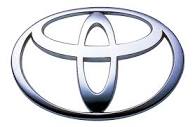Tundra 4WD V8-4.6L (1UR-FE) (2010)
/Page-717002.png)
*
Do not operate the cooler compressor before charging refrigerant as the cooler compressor will not work properly without any
refrigerant, and will overheat.
*
Approximately 200 g (7.05 oz.) of refrigerant may need to be charged after bubbles disappear. The refrigerant amount should be
checked by measuring its quantity, and not with the sight glass.
3. WARM UP ENGINE
(a) Warm up the engine at less than 1500 rpm for 1 minute or more after charging the refrigerant.
NOTICE:
Be sure to warm up the compressor when turning the A/C switch ON after removing and installing the cooler refrigerant lines
(including the compressor), to prevent damage to the compressor.
4. CHECK FOR REFRIGERANT GAS LEAK
(a) After recharging the refrigerant gas, check for refrigerant gas leakage using a halogen leak detector.
(b) Perform the operation under the following conditions:
*
The ignition switch is OFF.
*
The vehicle is in a place with good air ventilation and without any volatile gases, such as evaporated gasoline or exhaust gas. The detector
is very sensitive to volatile gases.
*
Some refrigerant is remaining in the refrigerant system.
*
The compressor is off and its pressure is approximately 392 to 588 kPa (4.0 to 6.0 kgf/cm2, 57 to 85 psi).
(c) Using a halogen leak detector, check the refrigerant line for leakage.
(d) If a gas leak is not detected on the drain hose, remove the blower motor control (blower resistor) from the cooling unit. Insert the halogen leak
detector sensor into the unit and perform the test.
(e) Disconnect the connector and wait for approximately 20 minutes. Bring the halogen leak detector close to the pressure switch and perform the
test.
